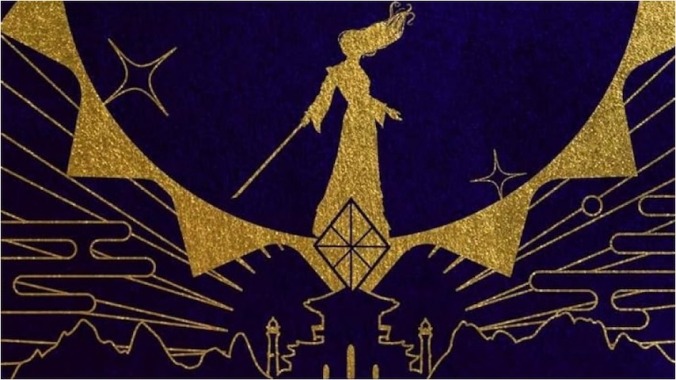An Empire Built on Body-Swapping: Chloe Gong’s Vilest Things

Readers expecting the conclusion of a Chloe Gong duology when you pick up Vilest Things, be warned! This second book in Gong’s “Flesh and False Gods Trilogy” is her Empire Strikes Back, her Two Towers. This is a very certain middle of the trilogy, in which many things happen, the stakes escalate, and nothing is brought to a conclusion. It’s the deliciously tantalizing volume of the series that will have readers shaking their fists to the heavens in frustration that they must wait (and eagerness for the final pages when they arrive).
If you’re just catching up: Vilest Things is the sequel to Gong’s 2023 Immortal Longings, her adult debut. While Gong begins with a similar theme to her YA novels—the series takes loose inspiration from a Shakespearean play, in this case, Antony and Cleopatra—it’s quickly clear that the author has entered a brave new world. The nation of Talin is a fully fleshed secondary world with a unique magical system that allows gifted individuals to move their qi from one body to another, taking over both empty vessels and the occupied bodies of those who have weaker qi.
Talin exists in the shadow of its war with Sica, the nation across its mountainous border to the north. For years, two ruling families governed the capital of San-Er, until the Tuolemi princess slaughtered her family five years before the beginning of Immortal Longings. That princess, Calla, then lived in hiding, biding her time until she could kill King Kasa Shinza as well, removing all the royals from the twin cities. During the first novel, she enters the king’s games, a murderous competition in which eighty-eight challengers enter and only the victor survives. Her entry is supported by Prince August, Kasa’s adopted son, who plans to take the throne sooner rather than later. Calla’s revenge ends with Kasa’s death, and though she has a gut feeling she’d prefer anarchy, she’s swayed by August’s protests that order is what the people truly need and that he’d be a better king in all ways.
What neither August nor Calla expect is the arrival of Anton Makusa, an exiled noble and August’s former best friend, whose birth body is held hostage by the royals, and who has entered the games to continue to pay the medical bills that keep his beloved—and August’s half-sister—Otta, alive. Even more unexpected, Calla and Anton, as the frontrunners, team up to eliminate the rest of the challengers, paving a path to both victory and betrayal. Even as they fall for each other, they know that only one of them can win, and neither is willing to give up their goal: Otta must live for Anton to succeed, and for Calla, Kasa must die. Without completely spoiling the ending of the first novel, things do not go well, and readers would be forgiven for expecting the asps to come out early as Calla sought her own end.
As Vilest Things begins, Anton is safe within August’s body, vying with his former friend for control, and Calla has been named August’s advisor. Furious with Calla for the events of the previous novel, Anton sends her to a far province—but there, she discovers what look like the remnants of a cult’s experiments with qi. Calla just wants to rest, her job done, but she lets herself become enmeshed in the realities of this new setting, and drawn deeper into the spirals of conspiracy that lie beneath the thrones of San-Er. When Otta awakes, it’s impossible to tell lies from the truth, especially as both Calla and Anton begin to suspect that much of what they’ve always accepted as truth is based on lies.
-

-

-

-

-

-

-

-

-

-

-

-

-

-

-

-

-

-

-

-

-

-

-

-

-

-

-

-

-

-

-

-

-

-

-

-

-

-

-

-








































